Bridging the Gap for Refugees
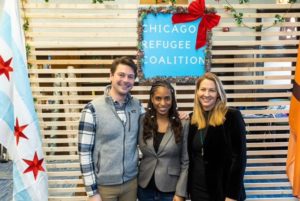 Afghan refugees heading for Illinois have a caring and devoted community awaiting them. It is estimated that a total of 3,000 Afghans may end up calling Illinois home. As of February 1, more than 1,890 Afghans have already resettled in Illinois since last fall’s evacuation of Afghanistan. When refugees reach Illinois, they continue their journey seeking a home, community, and support system in the United States. This assistance is often life changing for refugees because they face unique challenges while adjusting to resettlement.
Afghan refugees heading for Illinois have a caring and devoted community awaiting them. It is estimated that a total of 3,000 Afghans may end up calling Illinois home. As of February 1, more than 1,890 Afghans have already resettled in Illinois since last fall’s evacuation of Afghanistan. When refugees reach Illinois, they continue their journey seeking a home, community, and support system in the United States. This assistance is often life changing for refugees because they face unique challenges while adjusting to resettlement.
Refugees in the United States are at risk of chronic poverty and food insecurity in their first year. It’s important to ensure that resettled populations have the tools needed to succeed in the United States. The Chicago Refugee Coalition (CRC) is an organization that works diligently to bridge the gaps for refugees in need.
The Chicago Refugee Coalition
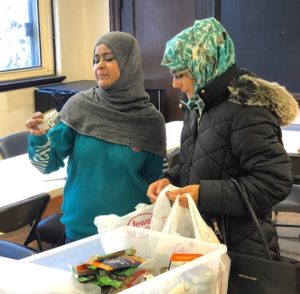 The Chicago Refugee Coalition (CRC) is a 501(c)(3) non-profit organization dedicated to the alleviation of human suffering through poverty relief services and community empowerment. Specifically, the CRC is focused on innovative, dignity-driven, and community-led relief services for Chicagoland refugees. It currently operates a first-of-its-kind refugee-centric resource center and library in Chicago, as well as distributes upwards of $400K annually of in-kind meals, resources, and goods through corporate partnerships with companies like Imperfect Foods, Whole Foods, and Bombas.
The Chicago Refugee Coalition (CRC) is a 501(c)(3) non-profit organization dedicated to the alleviation of human suffering through poverty relief services and community empowerment. Specifically, the CRC is focused on innovative, dignity-driven, and community-led relief services for Chicagoland refugees. It currently operates a first-of-its-kind refugee-centric resource center and library in Chicago, as well as distributes upwards of $400K annually of in-kind meals, resources, and goods through corporate partnerships with companies like Imperfect Foods, Whole Foods, and Bombas.
The CRC has taken an innovative approach in aiding newly resettled refugees. Jamia Jowers, CRC Board President, explained that “the biggest problem refugees face when they get to Illinois is food insecurity.” Services offered by the CRC are critical to solving the chronic poverty issue that many refugees face when reaching the United States. Imagine fighting hard to reach the United States after your nation becomes unstable and then struggling to eat once you have reached safety.
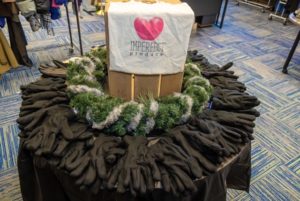 Jamia described the importance of the CRC’s partnerships with other organizations to “make sure that refugees have everything they need to immerse themselves into a new culture and community.” Through their partnership with Imperfect Foods, they’ve been able to provide meals to the refugee community with their mobile food banking effort, saving 78,000 pounds of produce from going to waste.
Jamia described the importance of the CRC’s partnerships with other organizations to “make sure that refugees have everything they need to immerse themselves into a new culture and community.” Through their partnership with Imperfect Foods, they’ve been able to provide meals to the refugee community with their mobile food banking effort, saving 78,000 pounds of produce from going to waste.
Picking Up Where the Government Leaves Off
The CRC picks up where the government leaves off by operating their innovative resource center at Sullivan High School, a school that has one of the highest proportions of refugees of any school in the nation.The resource center provides refugees with everyday essentials such as towels, hygiene products, housewares, and clothing. Right now, there are 30 newly arrived Afghan students enrolled at Sullivan. The Chicago Refugee Coalition expects 80-100 more Afghan students to be enrolled in the coming weeks. Since the resource center is located inside the school it allows the organization to be a consistent “touch point” for refugees in Chicago.
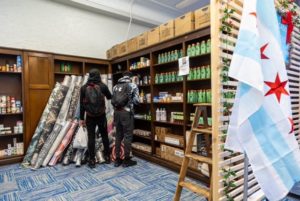 The Chicago Refugee Coalition also provides resources to help individuals with equitable access to legal counsel, a vital need of this population. They ensure that refugees can have domestic mobility and social security by providing a dedicated legal referral network. Access to top legal and/or immigration services can be the difference in a refugee’s economic prosperity. Further, the CRC believes that financial literacy is foundational for any community member, and they have been able to ensure a 46% increase in household income elasticity while impacting an average of 80 people per week with their services.
The Chicago Refugee Coalition also provides resources to help individuals with equitable access to legal counsel, a vital need of this population. They ensure that refugees can have domestic mobility and social security by providing a dedicated legal referral network. Access to top legal and/or immigration services can be the difference in a refugee’s economic prosperity. Further, the CRC believes that financial literacy is foundational for any community member, and they have been able to ensure a 46% increase in household income elasticity while impacting an average of 80 people per week with their services.
The Illinois Department of Human Services is expecting up to 3,000 more Afghans to call Illinois home by the end 2022, including about 400 Afghans expected to arrive in Illinois this month. The CRC is expecting about 500 of all Afghan refugees to resettle in Chicago.
Bridging the Gap
The Chicago Refugee Coalition has been successful in their comprehensive programming and service provision by providing refugees with food security, clothing, essential everyday provisions, and financial literacy training which has added comfort to the overall resettlement process. The work of the Chicago Refugee Coalition has already provided over 70,000 meals and distributed over 500 coats to assist in resettlement efforts and Chicagoland refugees are in great hands as the CRC continues its essential work.
Jamia Jowers, Chicago Refugee Coalition Board President, is a member of USGLC’s Illinois Advisory Committee.
related articles
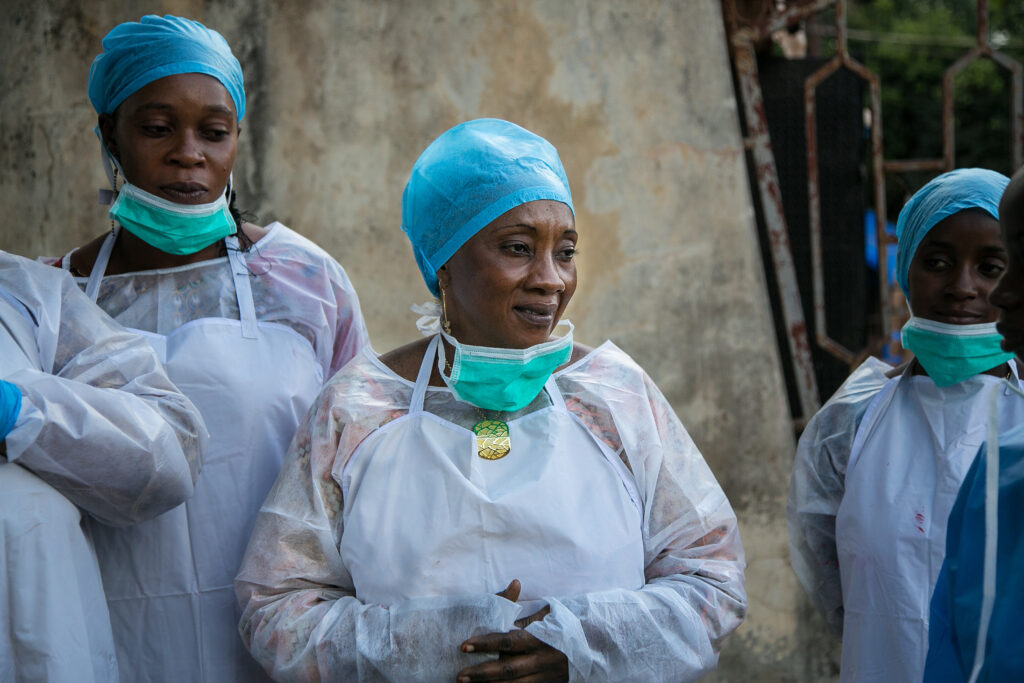
How One World Surgery is Making an Impact in the Global Health Space
By Guest Contributor – Claire Cunningham Elizabeth Onibokun on August 20, 2024 in
IllinoisUSAID’s commitment to global health is far-reaching and well-known, from increasing access to HIV treatment for millions, to distributing life-saving vaccines, to slowing the spread of deadly diseases like malaria and tuberculosis (TB). One area of the agency’s work that often goes overlooked and underfunded, is the effort to fight Neglected Surgical Conditions…



